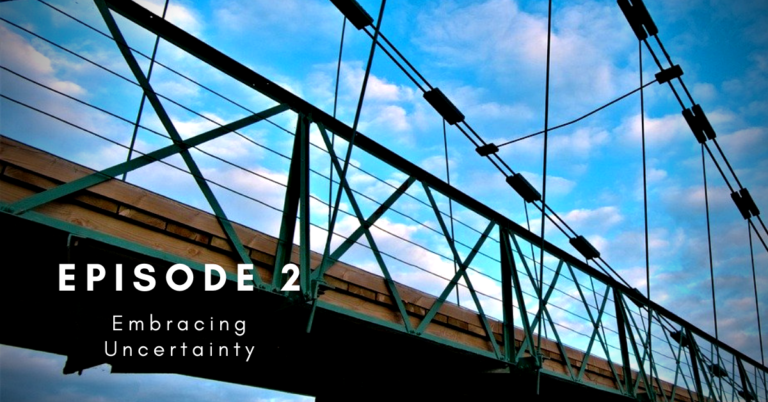
Tackling Fear, Psychological Safety, and Progress
Got psychological safety? Join us behind the scenes as Scott Crabtree, founder of Happy Brain Science, develops Choose Happiness @ Work Online—the online version of our popular card game! We’ve received many requests for a version to play with remote teams, and Scott is working to make that a reality! What challenges will he face? What obstacles will he overcome? And most importantly: how will he apply the science of happiness and engagement along the way? Welcome to the journey, where we’ll all find out together!
Episode #2: Embracing Uncertainty
Again, I stalled on my efforts to develop Choose Happiness @ Work Online. I was making great progress, then I found myself making excuses and finding ways to distract myself. I’d better check my email. I’d better look at social media…and the news…just to make sure…
After breaking through fear with the help of my informal coach Kim, a few neurons were trying to get my attention. They were asking: Am I afraid to take the next step on developing my video game? Why?
After a bit of reflection, it became clear: I was about to tackle the multiplayer programming for the game. While I’ve programmed a lot of video games in my life, I’ve never been responsible for the multiplayer code.
Fear often presents as questions that reflect uncertainty:
- Can I get this done?
- What if I do it wrong?
- What if I hit a dead-end?
- Should I be outsourcing this effort?
Ultimately, all of these questions boil down to:
- What if I fail?
Fear—often driven by uncertainty—is brain-hampering. When we move toward “fight or flight,” our brain defends itself and chooses between fighting, running, and freezing as its best options. None of these are great for making a good video game (or whatever you want to get done at work).
I took a deep breath. I remembered one of my favorite quotes: “Writing a novel is like driving at night. You can only see as far as your headlights, but you can make the whole trip that way.”
Boosting Psychological Safety
In my calmer state of mind, I realized I could ‘fork’ my code base. I could keep my initial efforts to develop the multiplayer code separate from the code I’d already created to display cards that could be dragged around a single player’s screen. I reminded myself that there have been many times I’ve been uncertain of if or how I would succeed (developing the physical version of Choose Happiness @ Work is a good example). And yet I ended up shipping the game anyway.
In essence, I gave myself psychological safety. This crucial concept was the #1 factor in team success in a massive study at Google. I helped myself feel safe enough to take the next step. Note that safety and comfort are different things. I still had uncertainty. I acted anyway.
And yes, I know I’m not jumping out of airplanes or taming tigers in my work. But it’s remarkably common for so many of us to develop real fear around a very professional job with almost no physical risks! Given how central psychological safety is to team success, it’s no surprise I’ve been asked by both game development studios and public transportation agencies to deliver sessions on psychological safety lately, which I had the pleasure of developing with my colleague Cheryl Collins.
Feeling safe enough to ‘unfreeze’ and take action, I made a backup. I started working through multiplayer tutorials. I ran into a problem—and I haven’t fixed it yet. But that’s OK. I’m moving forward. Because I feel safe enough, I can take action, learn, figure out the next step, and take it.
What—or who—are you afraid of at work? How has it affected your well-being and performance? How can you get more psychological safety?
Join Me on the Journey
I’d love to hear your thoughts! Thanks for commenting below, connecting through any of our social media channels, or contacting me here.
Check out these related posts in our Choose Happiness @ Work Online series: